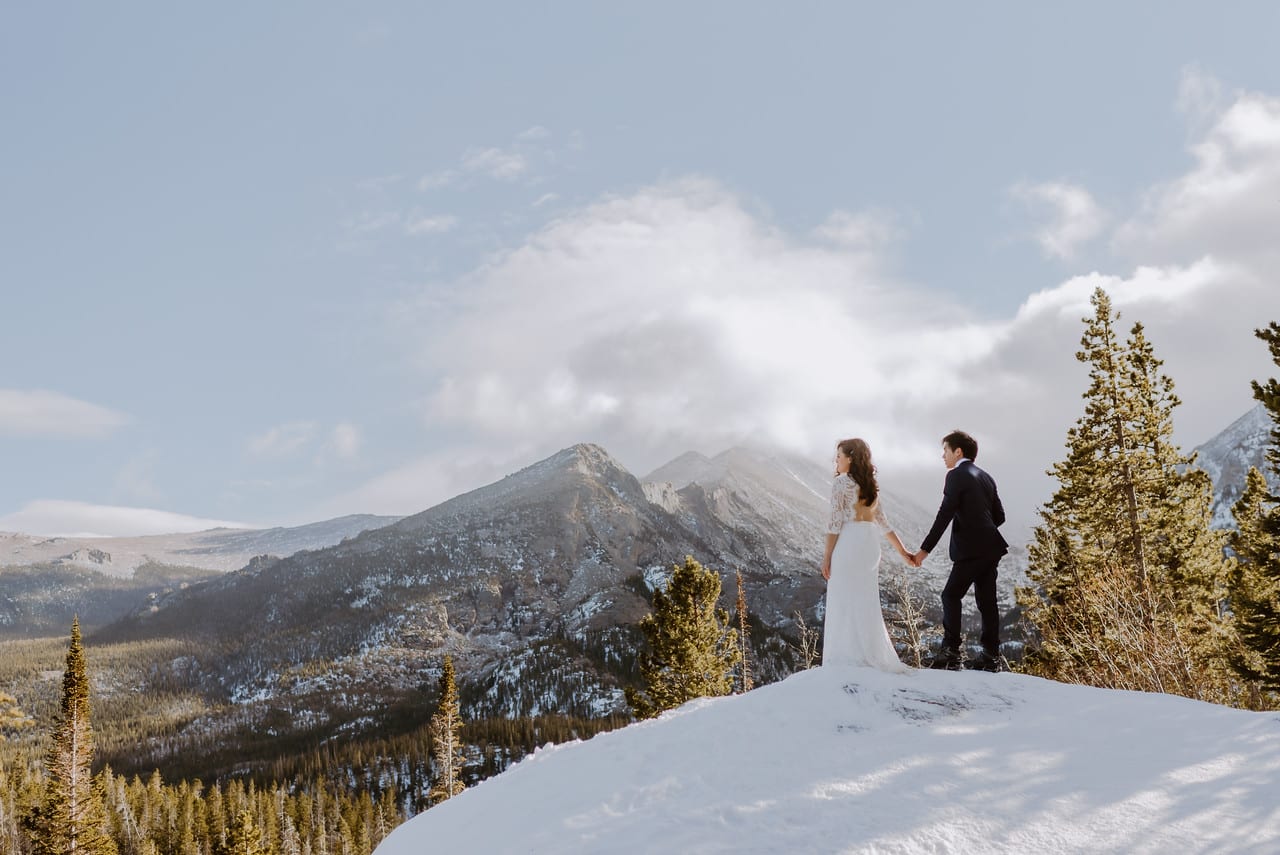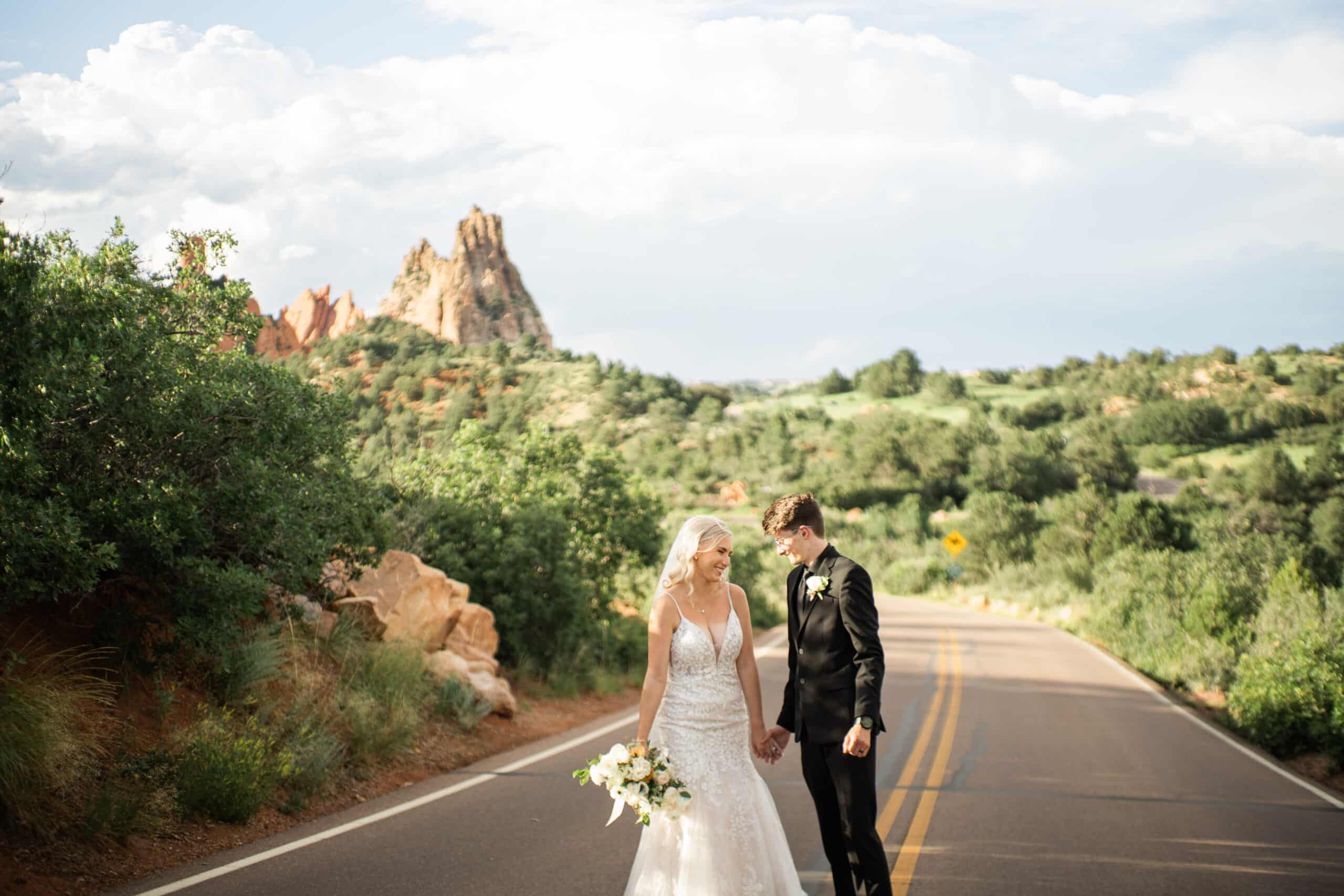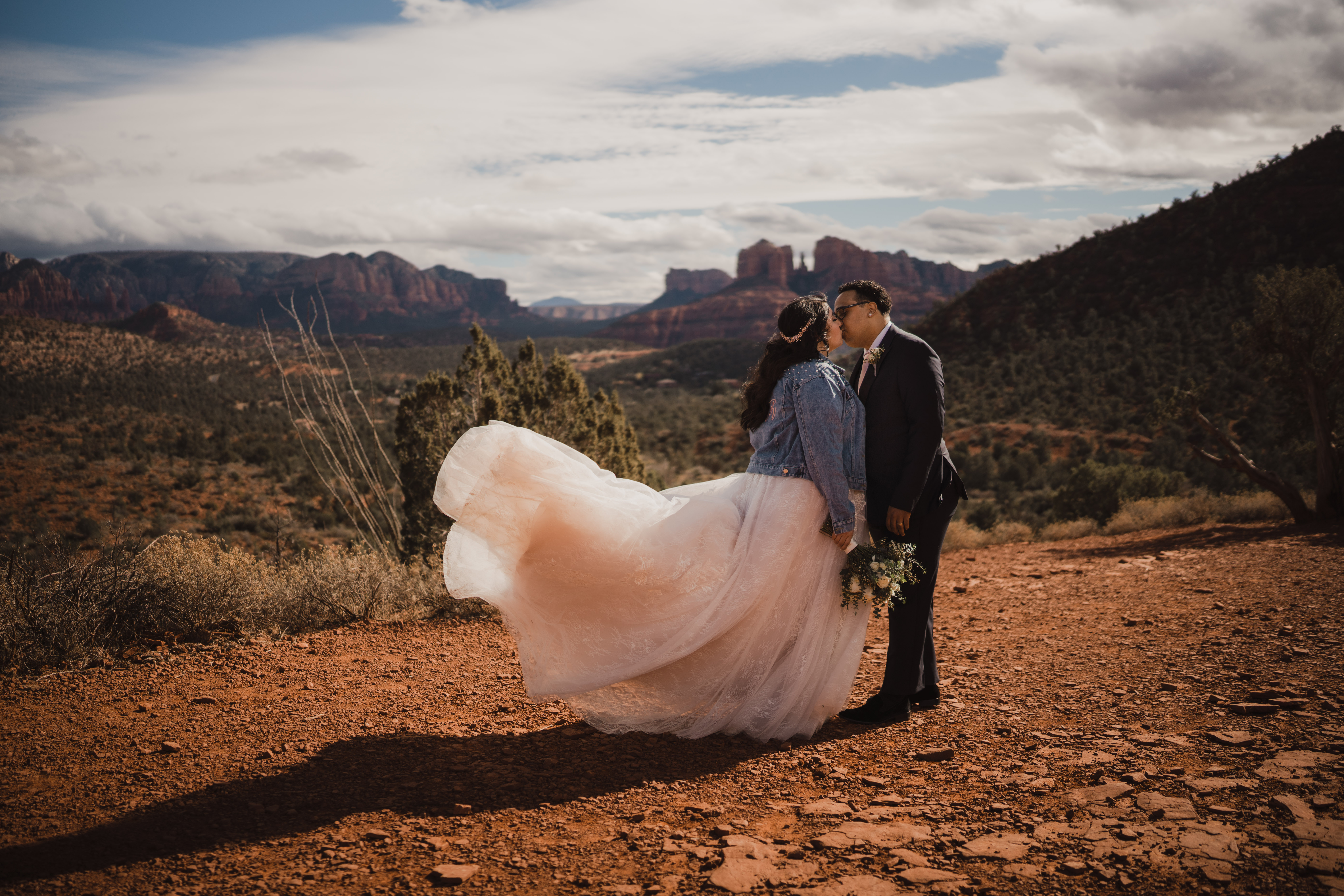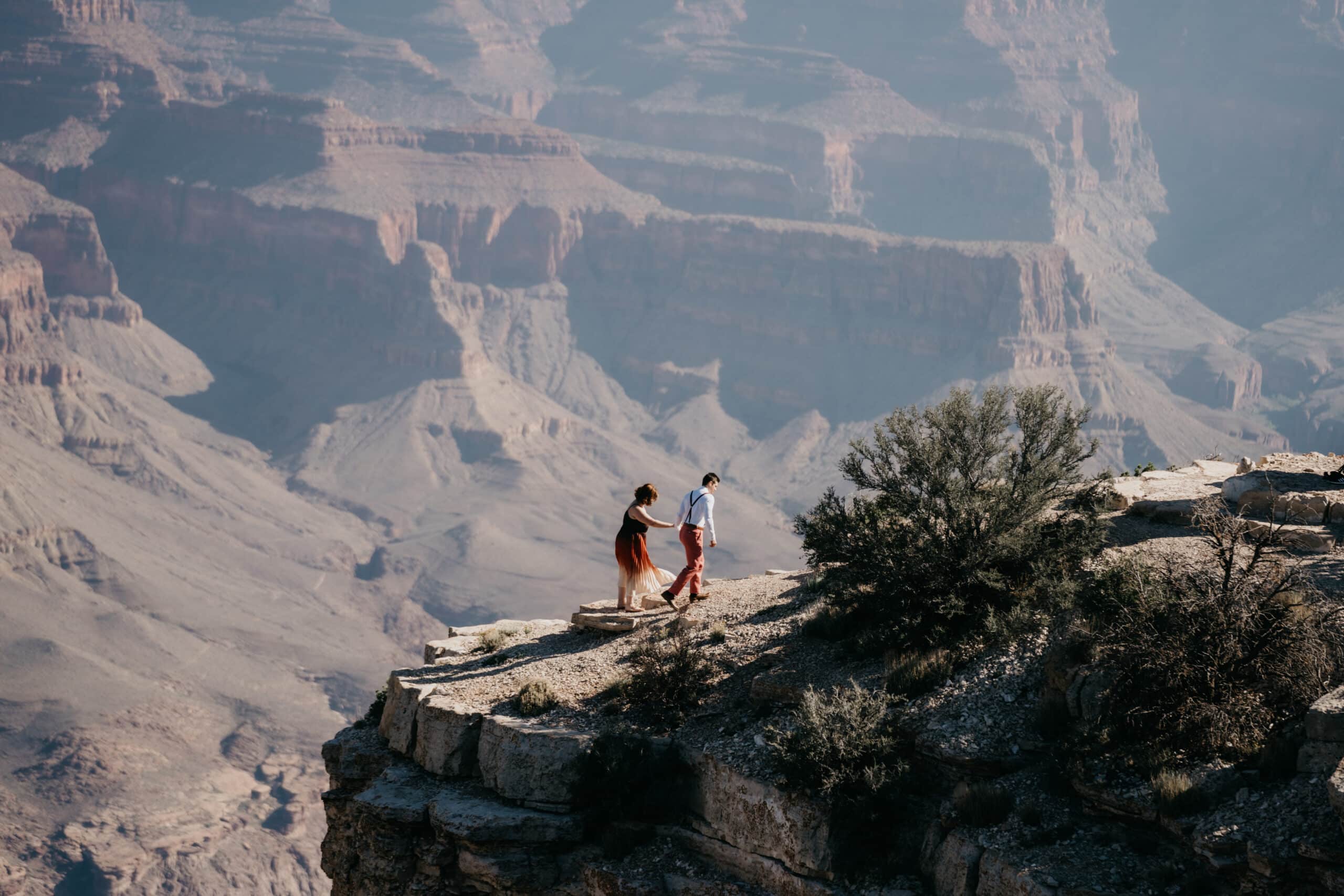How Does Eloping Save the Environment? 6 Environmental Perks of Eloping
no matter how small the gesture is, the impact can be astronomical, especially if we all do our part

When you think about a wedding, the mind typically drifts to white wedding dresses, fancy dinners, and gorgeous little ceremony details. But the beautiful parts of a wedding day actually have a pretty ugly truth: according to the Green Bride Guide, an average wedding produces 400 lbs of garbage and over 60 tons of CO2. Multiply that number by the millions of weddings that take place per year, and we’re looking at billions — yes, billions — of pounds of trash, all for one single day in a person’s life. And another scary stat: that amount of CO2 produced in just one day is the equivalent of burning over 65,000 pounds of coal. Those statistics are worrisome to say the least, but we do have the power to alter them.
In 2019 alone, Simply Eloped performed 2,053 ceremonies in the United States. Using the Green Bride Guide’s statistics, that means that our couples have saved the planet (drumroll please) 821,200 pounds of waste simply by choosing to forego a traditional large wedding. Mind. Blown!
Garbage and CO2 emissions aside, there are a handful of other ways that opting to elope can cut down on waste, and the environmental perks of eloping might just be the biggest eco-friendly game-changer the wedding industry has seen thus far. Let’s chat through the benefits eloping has on the environment, because if even one single reader chooses to elope over having a traditional wedding, we’ve preserved the earth in a major way.
Eloping gives back to the environment.

Wouldn’t it feel good to pay money towards preserving our beautiful planet, as opposed to shelling out thousands towards renting a venue? If you’re looking for the perfect location to elope, chances are, you’ll find it in a national park!
At Simply Eloped, we’re huge supporters of national parks, and tend to spend money on helping couples select gorgeous outdoor elopement locations as opposed to banquet halls or event spaces. This aids the programs that help preserve the land our couples adore to explore time and time again. In 2019, Simply Eloped performed 244 ceremonies in one of our favorite spots, Rocky Mountain National Park, and in doing so, contributed over $12,000. That number is simply for one year in one national park! The money we contribute can help preserve hiking trails and protect the landscape for the future — we’ll take that over a fancy hall any day.
Eloping reduces carbon emissions due to traveling.

If you’re choosing to elope alone or are having only a handful of guests, that means that you won’t have one hundred or more people needing to travel to and from your wedding by car or by air, which causes huge amounts of carbon emissions. And, if you’re choosing to elope closer to home, that means you’re reducing your carbon footprint even more! But, if you do decide to travel, consider traveling by train, bus or car over an airplane, as flying produces more CO2 than one person produces in an entire year. Yikes. In a survey taken by Simply Eloped couples who eloped in 2019, about 19% of couples eloped in their home state, decreasing their role in carbon emissions — way to go, lovebirds!
Eloping lessens food consumption and waste.

That filet mignon might look delicious at a wedding reception, but you might be surprised to know that your meal may have traveled even farther than you did to end up at that reception, making your mouthwatering dinner a big contributor to greenhouse gas emissions. The beauty of eloping is that not only do you save thousands on food (whose leftovers can get tossed, leading to even more waste), but you can take a more local, farm-to-table approach with your meals that larger caterers feeding hundreds can’t always provide. Choose to take things one step further and deliver leftovers to a food bank or shelter near your elopement location, or bring some containers for leftovers. Wedding dinners just taste better the next day, don’t you agree?
Eloping means you can go paperless.
You may not think that purchasing things like invitations and ceremony programs are a big deal, but the reality is that many of the paper and packaging options aren’t made from recycled materials and are generally trashed right after the wedding. It’s wasteful and, at times, harmful to the environment — and remember, these products will also have to travel to get to your guests’ doorstep! The beauty of eloping is that sending out wedding invitations or printing up dinner menus isn’t necessary; simply creating an online website with all of your details is more than enough if you’re inviting a handful of loved ones. If you are hell-bent on sending something tangible, always be sure to use recycled paper products to help reduce any form of waste.
Eloping cuts down on harmful chemicals and emissions from flowers.
Flowers are easily one of the most beautiful parts of a wedding day. But you might be surprised to find out that often, harsh chemicals and synthetic fertilizer can be used for your blooms — not to mention that they’re often shipped to your florist (we meet again, carbon emissions). If you zoom things out even further, you’ll see that it’s not just the flower’s potential chemicals and traveling emissions that hurt the environment, it’s the quantity of flowers themselves. The bride’s bouquet, and bouquets for all of her bridesmaids; the groom’s boutonniere, and the boutonnieres for all of his groomsmen; flower arches or aisle arrangements at the wedding ceremony, and centerpieces for the receptions — we are taking about thousands of flowers that, at the end of the night, usually get tossed in the trash. By choosing to elope, you’re taking that number from thousands to merely dozens, at max.
If these stats don’t sell you, then maybe seeing that the average cost for wedding flowers is $1,500 will. If you choose to elope, you’ll likely spend less than $200. So, are you warming up to the idea yet? (We sure hope so!)
Eloping follows the Seven Principles of Leave No Trace.

If you’re an avid outdoorsman or love visiting national parks, then you may have heard the quote, “Leave it better than you found it.” It means that it’s our responsibility to take care of our environment, that way we can do our part to preserve nature’s beauty. It’s the simple act of doing things because it’s the right thing to do, which is a big part of the Seven Principles of Leave No Trace. The beauty of eloping is that it emphasizes these practices when couples are out in nature, and makes couples more mindful of what they ultimately choose to bring with them for their big day, as opposed to a wedding venue where the couple has minimal responsibilities for cleaning up. So, to all you elopers: Right on!
There’s no shortage of ways that eloping helps to save our planet, and by taking the necessary steps, anyone can reduce their carbon footprint. Remember that no matter how small the gesture is, the impact can be astronomical, especially if we all do our part.





